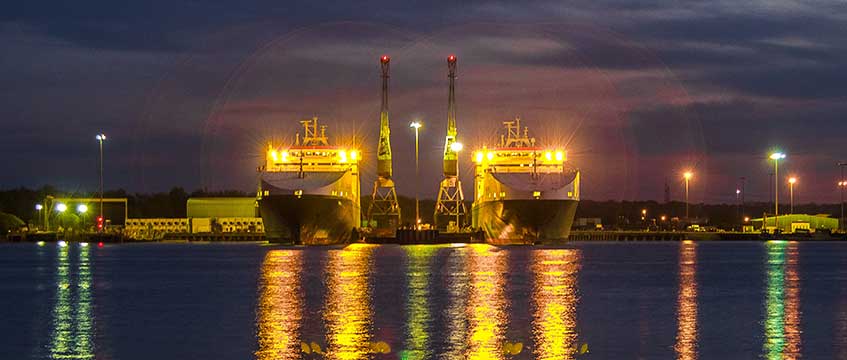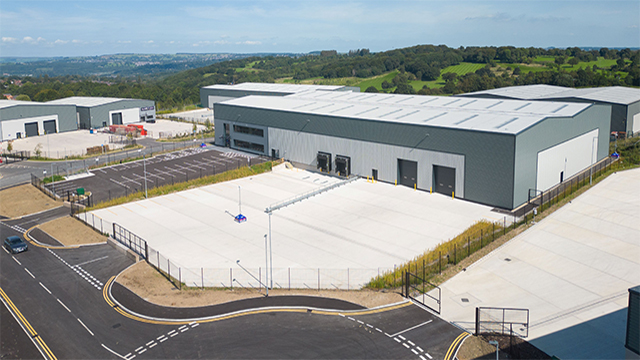For many in Southampton’s business community, March’s Budget had an undeniable highlight: the Solent Local Enterprise Partnership’s successful freeport bid.
As one of eight locations chosen for new freeports around the country – areas in which certain business tariffs are waived or lowered to encourage investment – Southampton appears to be on the cusp of a renaissance.
With both the private and public sectors eager to capitalise on the opportunity, the city is ready to lay out its vision for the future. Its message: we’re open for business.
Daniel Fitzhenry, who earlier this year became Southampton’s first Conservative council leader in almost a decade, believes the freeport is an opportunity to recast the city’s place on the global stage.
“The whole piece about the freeport is: who are we in the world, and how do we then trade with people in a way that we might not have done or could not have done pre-Brexit?” Fitzhenry says.
“The freeport is like saying to the world, ‘We’re open for business’, and then turbocharging that a thousand times over, because now we have tax and customs sites that can allow business opportunities, not only for relocation in the UK, globally and Europe-wide, but also for all the new start-up ideas to move around those ecosystems. That is incredibly important to us, but also to the region, because we are a powerhouse. And as we lift ourselves as a city, the region lifts too.”

Fitzhenry, who also holds a seat on the board of the Solent Freeport Consortium, is working together with councils in Bournemouth, Christchurch, Poole, Portsmouth and elsewhere to ensure the region capitalises on the opportunity.
“The freeport is great for our region; it’s great for UK plc,” Fitzhenry says. “We see our job as a city in the next two years as investing in the minds, hearts and souls of the people, but also in the public infrastructure – the parks, the city’s estates, our residential areas – to really lift this up.
“The freeport piece sits on top of that. That’s an incredibly great place to be. A lot of the answers to our problems, we won’t know. But that’s where partners and people who want to invest and develop will come along. We’re very much open to that.”
A post-Brexit boost
At Solent University, Nickie Butt, course leader in the Faculty of Business, Law and Digital Technologies, says the freeport will offer huge economic opportunity.
“The long and short is investment and money, and lots of additional jobs for the local community,” says Butt, who was a navigation officer after joining the merchant navy at 16. “When you have a freeport, the main reason is to put in place favourable policies, so it becomes a very attractive place for new businesses to come to.”
The Solent freeport area will extend across some 1,200 sq km, Butt notes, including the Isle of Wight, and some 25,000 jobs are likely to be created across the region. That scale should ensure that it competes with global rivals.
“[A freeport is] very attractive, particularly post-Brexit, because we’ve been fighting against the likes of Rotterdam, a freeport and very successful,” Butt adds. “Because Southampton and the Solent region is the first port coming from the channel and the last port out, it gives huge opportunities to bring in these goods, process them and then ship them on out.”
And the economic benefits will stretch far beyond the immediate region, she says, adding to a network spanning the other seven sites given the green light earlier this year.
“We should be generating growth right the way across the UK,” Butt says. “It makes us very competitive and gives us a huge advantage post-Brexit. It is something that we couldn’t really do previously. We are rebuilding ourselves.”
Into the stratosphere
Speaking of rebuilding, the real estate industry is also eager to ride the freeport wave. Shoosmiths real estate associate Grace Mitchell describes the initiative as “a fantastic opportunity” to boost the economies of Southampton, Portsmouth and other nearby towns.
“On the real estate side, there are going to be planning advantages as well,” she adds. “Part of the government’s freeport agenda is that local government should create local development orders so that permitted development rights can come forward in those areas and it is easier to develop.”
Shoosmiths real estate partner Mehar Patel adds: “It lends itself to stratospheric growth in the Solent region and joins up the Southampton economy with Portsmouth and the Isle of Wight. Traditionally, in the leisure scene that has worked really well, but in the business scene maybe hasn’t worked as well. We would be linking that together much better going forward.”
At Savills, Martin Hastelow, head of commercial agency, expects the freeport decision to spur on developers with existing schemes. “There is a bit of a race on to develop sites out,” he says.
And where those developers lead, others will hopefully follow – and not only around the freeport itself.
“I think the publicity from the freeport brings a focus on Southampton and the surrounding towns and cities,” Hastelow says. “I think people may come down, look at the freeport sites and some will go there, some won’t. But once they’re down here, will they look at other things? Will they look at the city centre? I think they will. I think it can only be good for publicity and marketing of the city as a whole and the region.”
Expert speakers
- Nickie Butt, lecturer, Solent University
- Daniel Fitzhenry, leader, Southampton City Council
- Gavin Hall, head of office and planning, Savills
- Martin Hastelow, head of commercial agency, Savills
- Grace Mitchell, associate, Shoosmiths
- Mehar Patel, partner, Shoosmiths

To send feedback, e-mail tim.burke@eg.co.uk or tweet @_tim_burke or @EGPropertyNews











